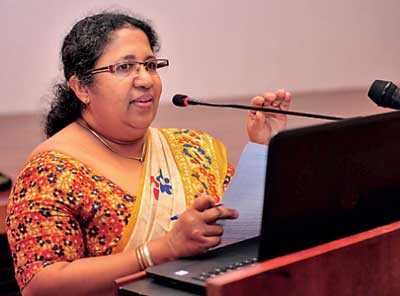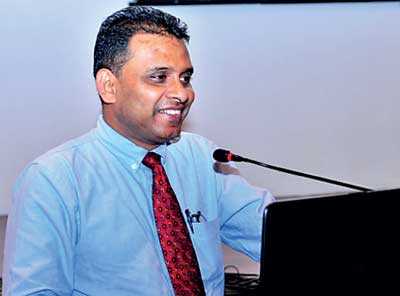Monday Feb 16, 2026
Monday Feb 16, 2026
Wednesday, 12 December 2018 00:00 - - {{hitsCtrl.values.hits}}

Sri Lanka Export Development Board in collaboration with National Plant Quarantine Service (NPQS), Department of National Botanic Gardens (DNBG) and Sri Lanka floriculture industry experts organised a full-day workshop on production of ornamental plants. The workshop was held on 4 December at the EDB auditorium.
 |
EDB Director – Export Agriculture Malani Baddegamage |
 |
The objective of this workshop is to encourage new investments in ornamental plant production for export market whilst improving the product quality. The workshop was organised for floriculture exporters/potential exporters and suppliers.
With the development of higher living standards of the world, people have started to buy more ornamental plants for personal use as well as for gifts. Also in companies, at events, weddings and recreation purposes have shown a use of more flowers and plants for indoor decorations. In Europe and USA there is a trend in bringing nature back in the daily life, by using natural ornamental plants. Therefore, there is a demand for best quality ornamental plants in the global market.
Floriculture industry is considered a high income generating agribusiness and it can potentially be harnessed as a means of socioeconomic development in Sri Lanka. Also, this sector can be identified as one of the opportunities to get women’s contribution to the national economy. It will enable the empowerment of women’s workforce while improving the standard of living. Sri Lanka earned around $ 16 million in year 2017 by exporting floriculture products. Of that 39% of products are exported as live plants while 60% of them exported as cut foliage. The world demand for ornamental plant production in year 2017 is nearly $ 19 billion which is Sri Lankan share is only 0.17 %.
In order to cater the export market, ornamental plants should be made in uniform quality in large quantities. Prior to the export, the plant quarantine certificate should be obtained according to the importing country regulations. Since current production is not sufficient, EDB has identified that new investments need to be promoted with the technological knowhow.